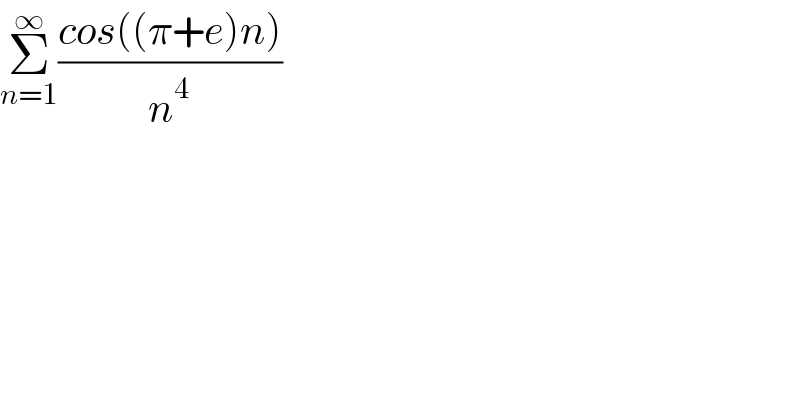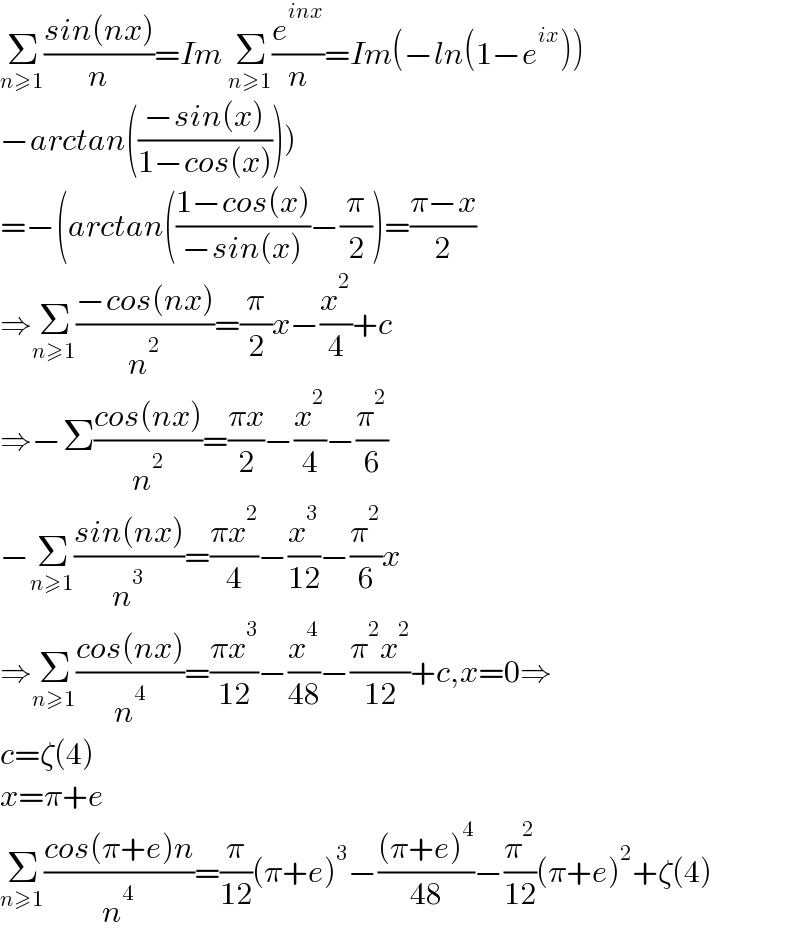
Question and Answers Forum
Question Number 133708 by Dwaipayan Shikari last updated on 23/Feb/21

Answered by mindispower last updated on 24/Feb/21

Commented by Dwaipayan Shikari last updated on 24/Feb/21

| ||
Question and Answers Forum | ||
Question Number 133708 by Dwaipayan Shikari last updated on 23/Feb/21 | ||
 | ||
Answered by mindispower last updated on 24/Feb/21 | ||
 | ||
| ||
Commented by Dwaipayan Shikari last updated on 24/Feb/21 | ||
 | ||